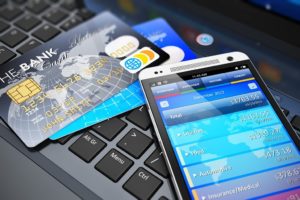 It is one of those timeless conundrums which has tested the thinking of man for centuries. If you had to, would you do something you know was very dangerous.
It is one of those timeless conundrums which has tested the thinking of man for centuries. If you had to, would you do something you know was very dangerous.
If you saw a child about to be run over, would you step in front of a car to save them? If you are dying of thirst, would you drink filthy water to survive? If you house is on fire, would you jump out of the window to escape.
We have all pondered these kinds of questions at some point, but fortunately most of us never have to contemplate the dilemma in reality.
But there are other everyday dilemmas that we do have to confront which, whilst perhaps not involving the same danger, can still expose us to significant risk.
One such example of this is when we use online banking. We know online banking is insecure. It doesn’t matter which bank you use, and how many trendy keypads and other gadgets they give you, we all know there is still a risk when we log into our online account which isn’t there if we want into a branch.
The popularity of online banking suggests two things about this. Either we don’t fully understand the extent of the risk, or we have decided it is a risk we are willing to take. For most of us, it is a combination of both.
But make no mistake, online banking does pose a significant risk. The level of security used by all banks is extremely weak and the techniques of online hackers gets ever more sophisticated. And often we don’t help ourselves, making basic errors like using easy-to-break passwords or logging on while connected to public Wi-Fi networks.
The ramifications if you are hacked can be significant too. Of course, you can lose a lot of money. However, as most banks will compensate you in those circumstances that is sometimes not a big worry. But going into overdraft or losing a sizable amount of money can affect things like your credit cards, and premium accounts you may hold, and of course run up charges with your bank that can take months to sort out.
Then there is your credit score. If you are hacked and miss payments as a result, it can affect your credit score which might cause you to be unable to get credit and secure mortgages and other financial services.
So, the question I am often asked is whether there is a way to protect ourselves when using Online Banking. Is it possible to make the process more secure?
Encouragingly, the answer is yes. And in this article I will give you my tips as to the top 3 ways to keep your online banking secure in 2016:
1. Use an ‘Anti-Spy Privacy Screen:
For all the high-tech ways that people get hacked these days, there are still a significant number of incidents where data is stolen simply by watching over people’s shoulder as they use their online banking account in public.
It might seem silly, but it happens a lot and it is unnecessary because there is a cheap and simple bit of kit which can prevent it: an Anti-Spy Privacy Screen.
There are available for all devices these days and work in the same way as a regular screen protector. However, they are a little thicker and a little darker, and this means that when you look at the screen of a device from an angle, you can see nothing.
Only the person directly facing the screen can make out what is there, so when you log onto your online banking on the go, you can be sure that the only person looking, is you.
2. Change your Password Regularly:
Passwords are another big vulnerability of online banking. Often they are easy to guess, simple to crack, and offer little or no real protection.
One way around this is to use a Password Manager such as Last Pass which can make it easy for you to use complicated passwords without having to remember them all.
But another relatively effective approach is just to change your password on a regular basis. If you are an occasional user, making a password change every few months is a sensible precaution, but if you are logging into your account regularly and from different locations, every few weeks would be more sensible.
3. Use a VPN:
Perhaps the most important tip on this list is to use a VPN. A VPN can help ensure your online banking is secure in a variety of different ways.
Encryption is vital to keep your data secure online and whilst all banks will encrypt their online banking data, some are more secure than others. A good VPN will ensure all of your online activity, including online banking is encrypted securely.
They also protect you when you are using public Wi-Fi. Again the encryption they offer means even the weakest of Wi-Fi connections becomes secure.
Indeed, VPNs are so good at encrypting your online activity that you can even access otherwise inaccessible online services, like being able to log onto Gmail while in China, where it is usually blocked.
With a VPN in place, and using these other precautions as well, you can be pretty confident that your online banking will be secure, no matter who you bank with.
Tags: economy, Financial Securities, investments, money, Online Banking, savings
Recent Comments